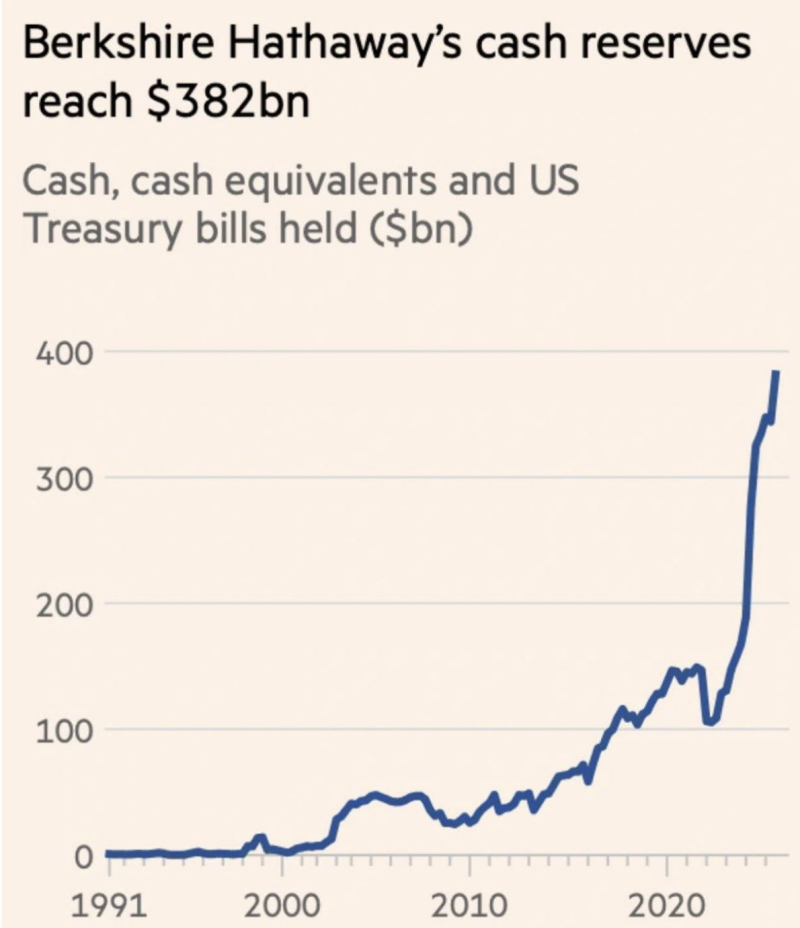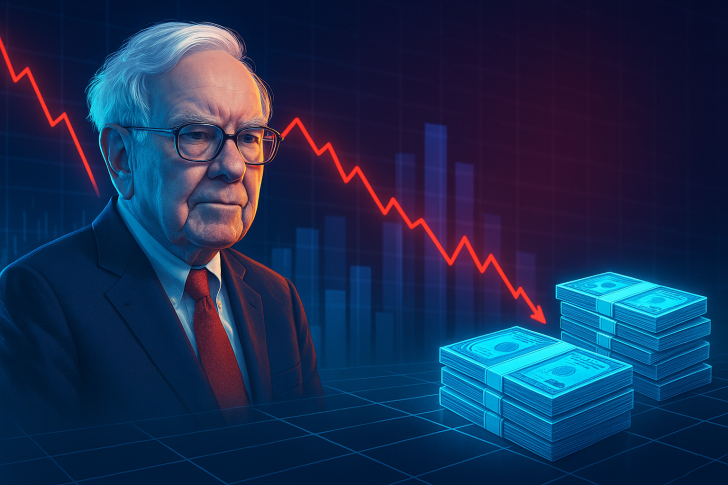⬤ Berkshire has reached a historic milestone, pushing its cash, cash equivalents, and US Treasury bill holdings to $382 billion. Warren Buffett is leaving his successor with the largest cash pile ever held by a U.S. corporation, just as markets are widely expected to face a correction. The company's liquidity has been climbing steadily for decades before accelerating sharply in recent years.

⬤ Berkshire has grown from negligible cash levels in the early 1990s to over $100 billion around the early 2020s, followed by a steep jump to the current $382 billion peak. The sharp upward curve over the past several years shows significant liquidity accumulation rather than aggressive capital deployment. This aligns with Buffett's cautious approach: the firm has chosen to pile up Treasury bills and cash instead of pursuing large acquisitions or expanding equity positions at elevated valuations.
⬤ Buffett is stepping back from active leadership with Berkshire Hathaway BRK.A holding unprecedented dry powder just as broader market sentiment signals rising downside risks. The cash balance has surged far beyond any prior historical range, suggesting the company is prioritizing financial flexibility. This fits Buffett's philosophy of preserving capital until opportunities emerge under more favorable market conditions.
⬤ The record $382 billion cash total matters because Berkshire plays an outsized role in shaping market perception of long-term value discipline. Such a large concentration of liquidity signals caution about asset prices and influences expectations around future market volatility. The sharp vertical rise highlights how Berkshire has shifted into a defensive posture, reinforcing concerns about stretched valuations and prompting closer attention to how major allocators are preparing for potential disruption.
 Usman Salis
Usman Salis

 Usman Salis
Usman Salis


